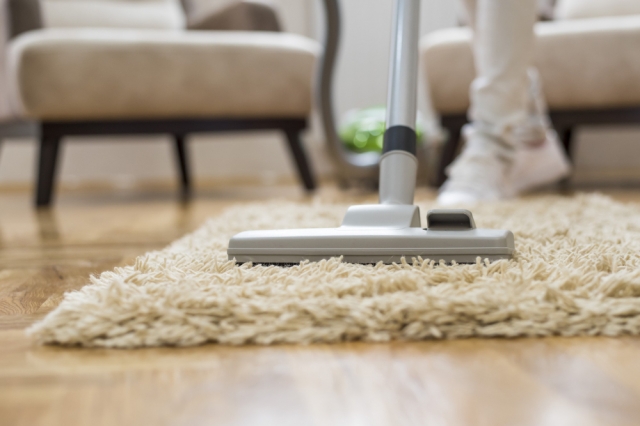
Table of Contents
- Introduction
- Carpets’ Role in Indoor Air Quality
- Common Pollutants Trapped in Carpets
- Benefits of Regular Vacuuming
- Importance of Professional Cleaning
- Choosing the Right Vacuum Cleaner
- Addressing Spills and Stains Promptly
- Carpet Materials and Indoor Air Quality
- Conclusion
Introduction
Maintaining clean carpets is more than just an aesthetic choice—it is crucial in improving and preserving indoor air quality (IAQ). The fibers in your carpet act as air filters, capturing small particles such as dust, allergens, and pollutants that would otherwise circulate in your home and impact the health of occupants. For those interested in both the visual appeal and health benefits, regular Carpet Cleaning quickly becomes a necessity rather than a luxury.
Without consistent upkeep, carpets can become saturated with contaminants. Rather than capturing new pollutants, dirty carpets can begin to release previously trapped particles back into the air, negatively affecting IAQ. This cycle is why a proactive approach to carpet care is critical for those seeking a safer, more breathable home environment.
Carpets’ Role in Indoor Air Quality
Carpets act as passive filters for airborne particulates, capturing everything from dust, pollen, and pet dander to microscopic allergens. Doing so, they help prevent these particles from remaining airborne, which can otherwise worsen allergies and other respiratory problems. Over time, however, carpets that aren’t maintained can reach their saturation limit—losing their ability to trap new particles and, in some cases, become a source of pollution. This highlights the vital relationship between carpet cleanliness and the quality of the air you breathe indoors.
Common Pollutants Trapped in Carpets
Many pollutants find their way into carpet fibers. Common culprits include:
- Dust Mites: Living in the dust and feeding on organic detritus, these microscopic organisms can trigger severe allergic reactions and asthma symptoms.
- Pollen: Especially during spring and fall, pollen enters our homes and settles into the deep fibers of carpeting.
- Pet Dander: Even in homes without pets, dander can travel on clothing and shoes, aggravating allergies in sensitive individuals.
- Mold Spores: Carpets exposed to moisture become breeding grounds for mold, releasing spores that may seriously affect indoor air and health.
Consistent maintenance and cleaning are essential to remove these contaminants and prevent their recirculation in the air.
Benefits of Regular Vacuuming
Vacuuming is the cornerstone of effective carpet maintenance. The Carpet and Rug Institute (CRI) advises that carpets be vacuumed at least once a week, often in high-traffic zones or homes with pets. A vacuum with a high-efficiency particulate air (HEPA) filter is especially advantageous. HEPA filtration captures up to 99.97% of airborne particulates, including the finest dust, allergens, and spores, directly reducing potential triggers for those with allergies or asthma. According to the U.S. EPA, regular vacuuming is one of the most effective ways to control the build-up of particulate matter indoors.
Importance of Professional Cleaning
While vacuuming is effective for routine surface cleaning, it cannot entirely remove the deeply embedded dirt, oils, and allergens that accumulate beneath the surface. Professional carpet cleaning, recommended every 12 to 18 months by organizations like the CRI, utilizes specialized methods such as steam cleaning to reach deep into the fibers. By extracting stubborn, ingrained pollutants, professional cleaning revitalizes your carpet and contributes significantly to overall IAQ and the longevity of your flooring investment. Always choose a professional service with certified technicians and industry-recognized methods for the best results.
Choosing the Right Vacuum Cleaner
Selecting the right vacuum is just as important as frequency. Vacuums featuring HEPA filtration are highly effective in trapping fine particles that basic models might recirculate. Upright vacuums are excellent for dense carpeting, while canister models can be ideal for stairs and smaller rooms. It’s also crucial to match your vacuum to your carpet type—for example, softer carpets may require adjustable height or suction settings to avoid damage while still maximizing pollutant removal. Like any home appliance, regular care and filter replacement are necessary to ensure continued performance.
Addressing Spills and Stains Promptly
Leaving spills unattended can quickly lead to stains and create an environment conducive to mold and mildew growth—both of which degrade IAQ and threaten the structure of your carpet. The best practice is to immediately blot up liquids with a clean, dry cloth, taking care not to rub, which can push contaminants deeper into the fibers. For particularly stubborn stains, choose cleaners recommended by the carpet manufacturer, and avoid using excessive amounts of water or harsh chemicals. Excess moisture, especially if left unaddressed, can contribute directly to problematic mold growth, as highlighted by the Centers for Disease Control and Prevention (CDC).
Carpet Materials and Indoor Air Quality
The type of material in your carpet has a significant impact on air quality. Choosing carpets certified by programs like Green Label Plus assures low emissions of volatile organic compounds (VOCs) and a healthier home environment. Natural fibers such as wool are particularly notable—they are sustainable, and wool carpets naturally regulate indoor humidity and offer resistance to dust mites and bacteria. When purchasing new carpet, consider these factors to minimize the introduction of pollutants and maximize benefits to IAQ.
Conclusion
Routine carpet maintenance is essential for ensuring a healthy, fresh, and vibrant indoor environment. Understanding the filtering role carpets play—and taking proper steps to maintain that benefit—means more than just a clean floor; it helps assure cleaner air throughout your living space. By keeping up with vacuuming, addressing spills immediately, choosing quality carpets and vacuums, and scheduling professional cleanings, you’re investing in the well-being of everyone who enters your home.